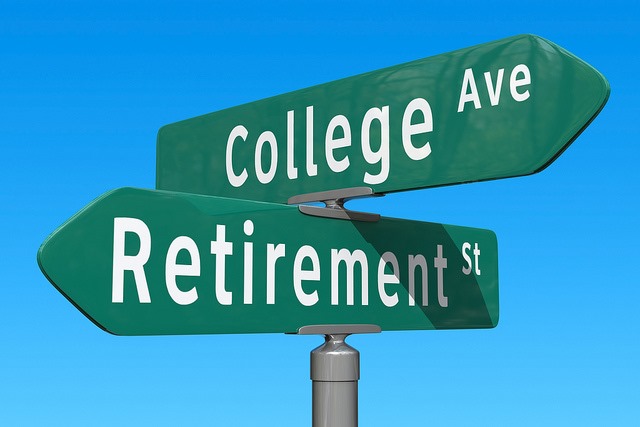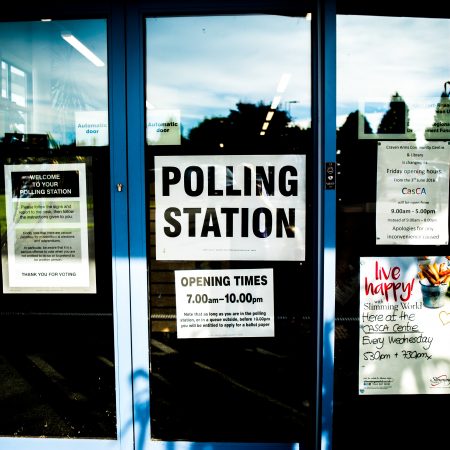‘Cosby Show’ for Muslims?
By Suzanne Manneh & Zaineb Mohammed
Has a Bill Cosby show equivalent finally arrived for Muslim Americans with the TLC network’s reality series, “All American Muslim?â€
The series, which premiered November 12th, could be that first step of offering an alternative image to common stereotypes for American Muslims. It centers around five Shi’ite Muslim American families who all have roots in southern Lebanon, living in the Detroit, Michigan suburb of Dearborn.
“We really hope that we’re able to give viewers that sort of rare chance to kind of get immersed and enjoy the ride with this community that they have previously been completely unexposed to, said Alon Orstein, an executive producer for the series.
According to a TLC press release, the series, “shows how these individuals negotiate universal family issues while remaining faithful to the traditions and beliefs of their faith.â€
A year before its debut, CBS news anchor Katie Couric declared that “bigotry expressed against Muslims in this country was one of the most disturbing stories to surface,†in 2010. Couric was referring to the proposed New York “Park 51†Islamic Center that generated national media attention and criticisms. “Maybe we need a Muslim version of ‘The Cosby Show,’†she said. “I know that sounds crazy, but “The Cosby Show†did so much to change attitudes about African Americans in this country, and I think sometimes people are afraid of what they don’t understand.â€
Media experts, organizers, and advocates in the Arab and Muslim community agree with Couric, but believe that while “All American Muslim,†may not have the same immediate impact on mainstream America that “The Cosby Show†did, this new reality series is a much needed small step in the right direction.
Amina Sharif, communications director for the Council on American Islamic Relations (CAIR) office in Chicago, said she is hopeful for the new series, because it will offer “a more mainstream image of American Muslims.â€
“They are often stereotyped and misunderstood because of negative portrayals in media and pop culture. [This program] is normalizing Muslims,†said Sharif. “That’s the way [of] American culture – we needed ‘The Cosby Show’ to help normalize African American families.
In this society public opinion is shaped mainly by media and pop culture,†she said.
Zahra Billoo, executive director for CAIR, Northern California, echoed Sharif’s hopes for the program, adding that the program may be especially helpful because “over 60 percent of Americans have never met a Muslim,†she said citing a 2010 poll by TIME Magazine.
Another poll by Washington Post-ABC News, conducted in 2010, found that “roughly half the country (49 percent) holds an unfavorable view of Islam, compared with 37 percent who have a favorable view.†In October 2002, 47 percent said they had a favorable view of Islam and 39 percent said they had an unfavorable view.
In September of 2011, the tenth anniversary of the World Trade Center attacks, a CBS Poll found that one in three Americans think Muslim Americans are more sympathetic to terrorists than other Americans.
Warren David, president of the American-Arab Anti-Discrimination Committee (ADC) said he hopes this series reaches these audiences and hopes they see beyond the stereotypes. “There are many people who don’t watch public or educational programming, but do watch TLC,†he said.
Hopeful, But With Some Reservations
While Muslim and Arab community leaders and media are generally optimistic about the positive impact the show could have on American Muslims, some did express reservations.
Many stressed the importance of not using the show as a way to teach the American public about Islam. Citing the various ways that different Muslims practice Islam, community members were concerned that the religious practices of these five families would become the face of Islam.
“I hope audiences understand that much of what they’re seeing isn’t Islam, it’s the person’s culture,†said Sharif of CAIR, Chicago.
Others questioned the choice to place the show in Dearborn, Michigan, which has the highest concentration of Arabs in America.
According to a Gallup poll, 35 percent of Muslims in America are African American and 18 percent are Asian. Additionally, the majority of Arab Americans are Christian, and according to the Muslim Public Affairs Council, only approximately 20 percent of Muslims are Arab. The gap between the reality of the American Muslim landscape and the show’s portrayal of the Muslim community frustrated many Muslim Americans.
After the premiere, #AllAmericanMuslim was a popular trending topic in social media, and several viewers sounded off angrily about the lack of ethnic diversity.
On Facebook, Ola Said commented, “This is a group of Lebanese American families in a localized spot in a city in MI. These examples do not portray an All American Muslim at all.†HussamA tweeted: “The risk with shows like #AllAmericanMuslim is that as existing stereotypes are challenged, new ones are perpetuated. Oh well.â€
Dawud Walid, executive director of CAIR Michigan, expressed the danger behind conflating the terms Arab and Muslim, “When nothing but Arabs are depicted it shifts people’s minds to the Middle East. There’s a lot of negative stigma attached in the minds of Americans with the Middle East.â€
The national spotlight on Dearborn within the past couple of years offers a potential rationale for choosing that city as a setting. In May 2010, Rima Fakih, from Dearborn, became the first Muslim and Arab American to win Miss USA. Nevada politician Sharron Angle proclaimed that Dearborn was operating under sharia law during her campaign for US Senate. And in June this year, Pastor Terry Jones, known for burning a Qu’ran, went to Dearborn for the second time to protest Islam.
However, Alon Orstein, one of the executive producers of the series, offered a different explanation for the choice of Michigan and Dearborn in particular.
“We found this group of families that we just fell in love with …the natural drama we look for in our shows, they had it going on in spades,†said Orstein.
And for Orstein, diversity with respect to characters’ religiosity was important, “we did achieve a level of diversity with respect to how our different characters experience their faith.â€
Other criticisms of the show came from anti-Muslim groups, who created a “Boycott TLC for New Program ‘All-American Muslim’†Facebook page.
However, according to Linda Sarsour, executive director of the Arab American Association of New York who helped with the show’s social media campaign, those Islamophobic criticisms were drowned out online by discussions (and disagreements) amongst Muslims about the show.
Some disapproved of the characters’ actions, in particular Shadia Amen, who described herself as the black sheep of her family. Imani Bsj, commented on Facebook, “If she was born Muslim I just can’t understand how she has all those tattoos.†But others related to her choices. Feda FeFe Saleh posted, “I’m a Muslim who prays 5 times a day but doesn’t wear hijab. Do I think Shadia exposed a little too much about her lifestyle, yes, but this is not for me to judge.â€
Some community members expressed hope that more diversity will be featured as the show progresses. But they are generally pleased that the show exists. “Right now, we’ll take what we can get,†said Sarsour.
New America Media
13-49













2011
965 views
views
0
comments